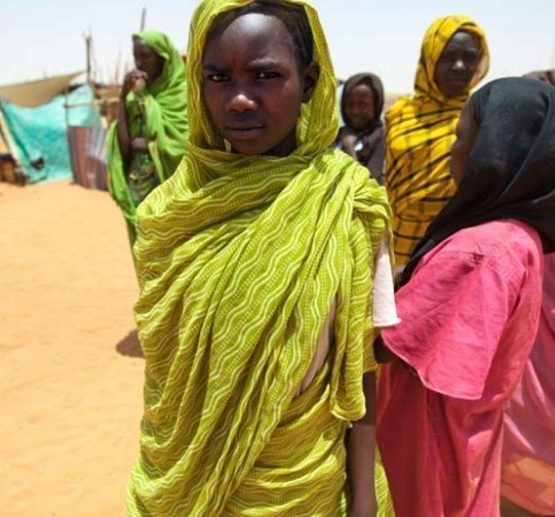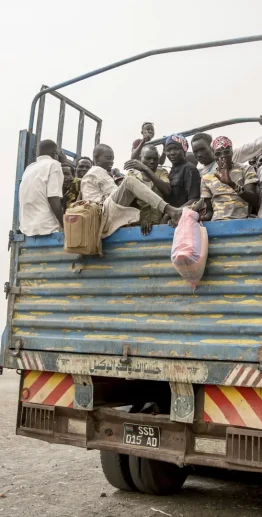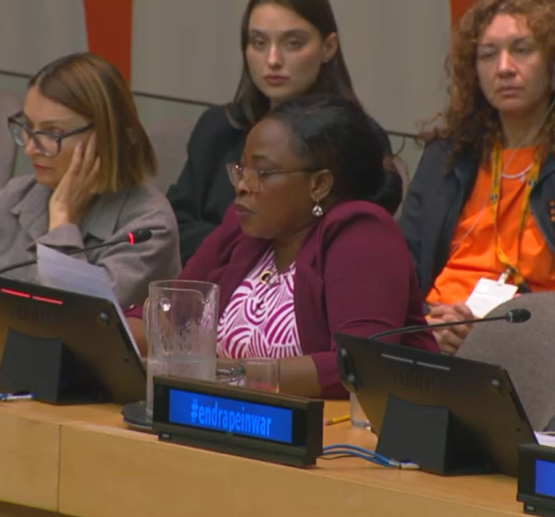Ethiopia Conflict Aggravates Ongoing Humanitarian Crisis in Sudan
By Caroline Kinsella
By Tuesday, November 17, more than 27,000 Ethiopian refugees had crossed into Sudan. Most were women and children, who arrived in desperate need of medical attention, following a very long and challenging trek to safety across the border. The violent conflict began in early November between Ethiopia’s federal government and the federal north state of Tigray, forcing Ethiopian civilians to seek safety in Sudan. Yet Sudan is in the midst of its own humanitarian emergency involving ongoing violence against Darfuris and other marginalized populations, mass displacement, and an out of control COVID-19 crisis. As waves of Ethiopian refugees cross the border daily, humanitarian resources in Sudan have become exponentially strained. Should Sudan’s fragile transitional government decide to back one actor over another in the Ethiopia conflict, there may be catastrophic consequences for already suffering civilians and refugees seeking protection.
On Wednesday, November 4, Ethiopian Prime Minister, Abiy Ahmed, launched a military offensive against the Tigray region, controlled by the opposition-Tigray People’s Liberation Front (TPLF). The Government of Ethiopia used recent TPLF local elections that defied federal orders and an alleged TPLF-orchestrated attack on a federal military base as justification for this operation against the region and opposition government. Prime Minister Abiy Ahmed also imposed a State of Emergency for the next six months in Tigray. Phone and internet services were immediately shut off in Tigray, making it extremely difficult for humanitarian groups to understand population needs during the government’s airstrikes on the region. As the fighting wages on, controversial attacks by both sides have led to the deaths of innocent civilians. Since November 10, an estimated 4,000 Ethiopian refugees have entered Sudan every day, with an expected 200,000 total to reach Sudan during this conflict.
In coordination with Sudan’s transitional government, international humanitarian agencies are at work responding to the immediate medical needs of Ethiopian refugees. Hygiene in the era of COVID-19 is a major concern, and clean water and soap are being delivered to towns at the border. There is also an effort to construct more latrines and temporary shelters for refugees. The World Food Programme and Muslim Aid are two agencies working to provide other relief items to refugees, including blankets, sleeping mats, and nutrition-packed meals. Additionally, Sudan’s Ministry of Health and Sudan Red Crescent have together created two clinics for health screenings and medical services. This week, UNHCR spokesperson Babar Baloch underscored the urgency for more international funding, as the needs of refugees are already overwhelming the abilities of current humanitarian initiatives.
Ethiopian refugees crossing the border find themselves entering another unstable nation. The Ethiopia conflict comes at a time when Sudan is facing a widespread and multi-layered humanitarian emergency, fueled by ongoing violent clashes, a worsening COVID-19 spread, natural disasters, and mass displacement. These events place additional burdens on the already resource-strained health system and humanitarian responses. At the end of October, an estimated one in four Sudanese faced food shortages, and many lacked access to essential medical services. New refugees fleeing Ethiopia will now face these challenges and more. By November 14, it was reported that there were intensifying food, shelter, and health care shortages in the areas of East Sudan where Ethiopians are seeking refuge. With new refugee camps already lacking humanitarian essentials, since local governments were initially ill-equipped to fund services, some refugees have begun to venture elsewhere into Sudan.
As Sudan grapples with its own country-wide emergencies, we do not yet know how the transitional government will become involved in the Ethiopian crisis, other than responding to the enormous migration of refugees. Following the ousting of former President al-Bashir in 2019, the new transitional government became tasked with ushering in a new democratic and civilian-led era for Sudan. A year and a half later, democracy is extremely fragile in Sudan, with many cracks widening even as a peace process is underway. Former President al-Bashir has still not been handed over to the ICC for prosecution for his orchestration of the systematic genocidal campaign in Darfur. During his regime, he also jeopardized Sudanese foreign relations and aid by controversially intervening in neighboring conflicts.
The current Sudanese transitional government is barely new itself, because sitting in many seats of power are generals from the al-Bashir regime with direct links to the genocide in Darfur. It is still complicit or responsible for the ongoing attacks against innocent Darfuri civilians and refugee camps. The interim government, as well as the international community, has failed to bring perpetrators of mass rape and genocide in Darfur to justice. It is extremely alarming that the transitional government is fueling a culture of impunity for those who commit crimes against humanity and demonstrates time and time again that it cannot adequately protect civilians from harm.
Therefore, the worsening crisis in Ethiopia and the surge of refugees entering Sudan are extremely worrisome to those who survived the genocide and human rights activists bringing aid to the region. Sudan’s border with Tigray has been closed since the conflict began in early November, but it is no stranger to violent attacks. Just this summer, thousands of Sudanese civilians living at the border fled the area following multiple raids by Ethiopian gunmen. These kidnappings, killings, crop destruction, and displacement created tense border relations. In light of this growing insecurity, Ethiopian Prime Minister Abiy Ahmed met with Sudanese Prime Minister Abdallah Hamdok in August to discuss strengthening cooperation between the two countries.
Now several months later, it appears as though Khartoum is attempting to remain minimally involved in the conflict between its neighbors. On Wednesday, November 11, Sudanese Prime Minister Hamdok called for the warring parties to stop the fighting and instead engage in peaceful negotiations with international mediators. Sudan has a history of involvement in Ethiopian and Eritrean policy matters, including supporting the TPLF and Eritrean Liberation Front (ELF) decades ago. Yet if Sudanese Prime Minister Hamdok decides to support the TPLF, the Government of Ethiopia may take consequential actions to ensure instability and failure of comprehensive Sudanese peace accords. Preliminary research suggests that given the choice to back the TPLF and Eritrean opposition groups, Sudan’s losses outweigh gains. If the interim government aids one side over another, then the fighting will become regional and lead to even larger-scale suffering.
The conflict has also prompted statements by U.S. government officials. On November 6, U.S. Representative Karen Bass (D-CA) issued a joint statement with Representatives Barbara Lee (D-CA), Donald Beyer Jr. (D-VA), Steve Cohen (D-TN), Jamie Raskin (R-MD), and Brad Sherman (D-CA) on the growing political instability in Ethiopia. They urged the Government of Ethiopia to respect the human rights of all citizens, called on the African Union and regional partners to mediate peaceful dialogues, and requested that the United States be on stand-by to provide diplomatic tools for transitional justice. The Assistant Secretary for U.S. Department of State’s Bureau of African Affairs, Tibor Nagy, most recently announced on November 15 that the U.S. condemns recent TPLF attacks on Eritrea and efforts to “internalize the conflict in Tigray.” To date, no diplomatic talks have been successful at dissolving the conflict, and Ethiopian refugees continue to flock to safety in Sudan.
This is an enormous diplomatic and humanitarian test for the transitional government of Sudan and for all global citizens. As we watch the crisis unfolding from around the world, there are concrete and urgent actions that can and must be taken. First, we must raise awareness of the human suffering, by sharing the stories of Ethiopian refugees and calling attention to their humanitarian needs in displaced person camps. Second, we must pressure our local leaders and international changemakers to demand a ceasefire and open negotiations to end the suffering of innocent civilians. Additionally, there must be an expansion of humanitarian funding and life-saving assistance services to adequately respond to the new influx of refugees.
The genocide in Darfur has also taught us to prioritize the needs of women and girls in humanitarian responses, who often have unique trauma needs due to rape used as a tool of war. An unknown number of women and girls have been victims of sexual violence in the ongoing attempt to exterminate ethnic African tribes in Darfur. Yet too many suffer in silence due to social stigmas that prevent them from sharing their stories and accessing medical resources. Gender must always be at the forefront of humanitarian responses, and we must anticipate gender-based violence both during and after this conflict. In order to create a world in which women’s bodies are no longer strategically used weapons of warfare, we must take concrete actions to always believe survivors, respond to their medical needs, empower them to share their stories, and create systemic change that brings perpetrators to justice.
At this moment, we can anticipate many of the conflict’s potential impacts on civilian life. As the Ethiopia conflict intensifies, so too will human suffering. Actions by global citizens, international entities, and regional actors will determine how, if at all, the human rights of refugees are safeguarded now and in the post-conflict development period. We can harness international attention on Sudan’s treatment of refugees to demand the urgent need to create a more inclusive and peaceful future for Sudan. One that ensures that refugees crossing borders are protected and treated with dignity in accordance with international laws. One that brings justice to the victims and accountability for perpetrators of war crimes and gender-based violence.
There has still been no accountability for the genocide in Darfur, and now the transitional government is tasked with making foreign policy decisions that could have massive consequences for civilian life. This conflict may single-handedly define Sudan’s near diplomatic future, and the interim government of Sudan must ensure the stability of all nations involved. With so much at stake, and with the international spotlight temporarily on every movement of Sudan’s interim government, we must stand firm in our commitment to effectively protect the human rights of all people living in Sudan, demand an end to violence in Darfur, and bring long-awaited justice for survivors of the genocide.
Caroline Kinsella is a recent Boston University graduate, with a BA in International Relations and a double minor in Public Health and Women’s, Gender, and Sexuality Studies. Passionate about advancing gender equity and ending gender-based violence, she serves as the current policy intern for Darfur Women Action Group.



